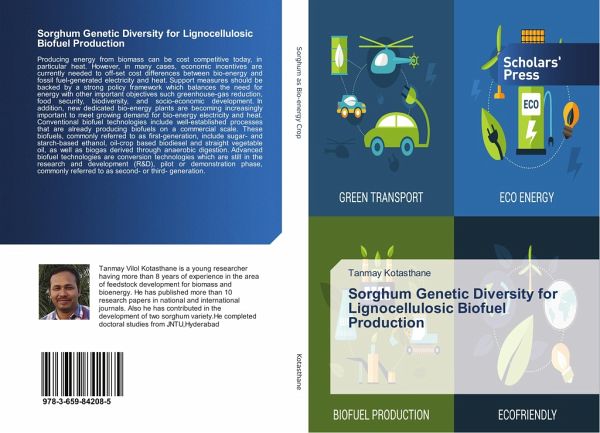
Sorghum Genetic Diversity for Lignocellulosic Biofuel Production
Versandkostenfrei!
Versandfertig in 6-10 Tagen
45,99 €
inkl. MwSt.

PAYBACK Punkte
23 °P sammeln!
Producing energy from biomass can be cost competitive today, in particular heat. However, in many cases, economic incentives are currently needed to off-set cost differences between bio-energy and fossil fuel-generated electricity and heat. Support measures should be backed by a strong policy framework which balances the need for energy with other important objectives such greenhouse-gas reduction, food security, biodiversity, and socio-economic development. In addition, new dedicated bio-energy plants are becoming increasingly important to meet growing demand for bio-energy electricity and he...
Producing energy from biomass can be cost competitive today, in particular heat. However, in many cases, economic incentives are currently needed to off-set cost differences between bio-energy and fossil fuel-generated electricity and heat. Support measures should be backed by a strong policy framework which balances the need for energy with other important objectives such greenhouse-gas reduction, food security, biodiversity, and socio-economic development. In addition, new dedicated bio-energy plants are becoming increasingly important to meet growing demand for bio-energy electricity and heat. Conventional biofuel technologies include well-established processes that are already producing biofuels on a commercial scale. These biofuels, commonly referred to as first-generation, include sugar- and starch-based ethanol, oil-crop based biodiesel and straight vegetable oil, as well as biogas derived through anaerobic digestion. Advanced biofuel technologies are conversion technologies which are still in the research and development (R&D), pilot or demonstration phase, commonly referred to as second- or third- generation.












